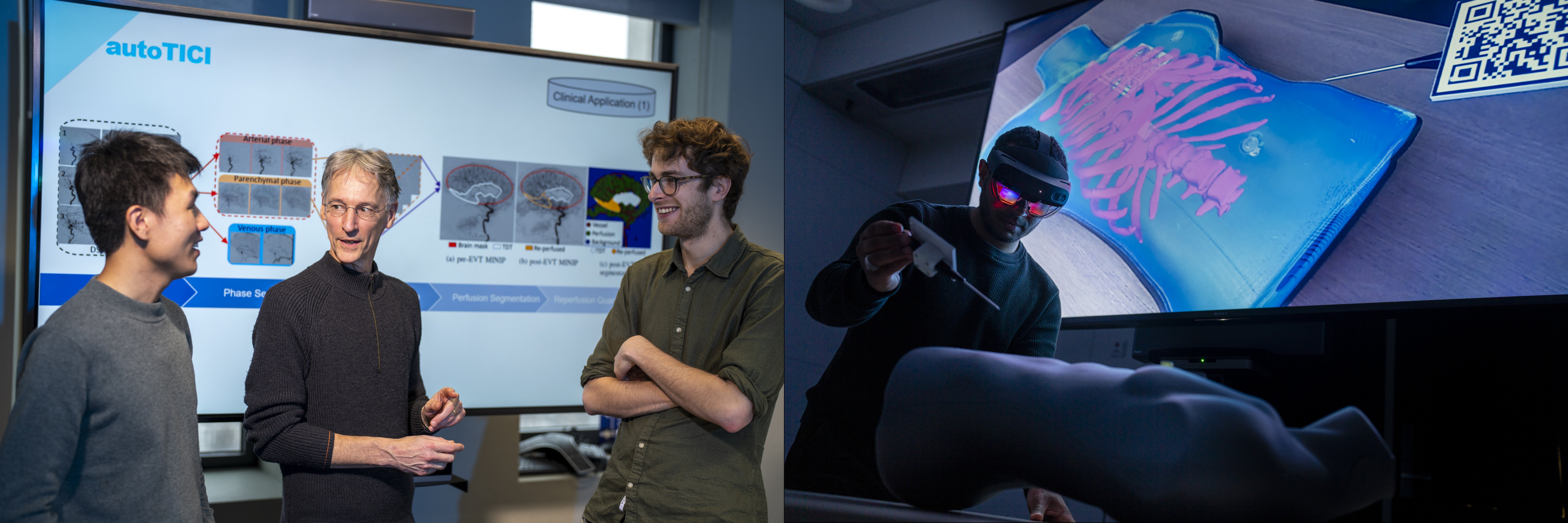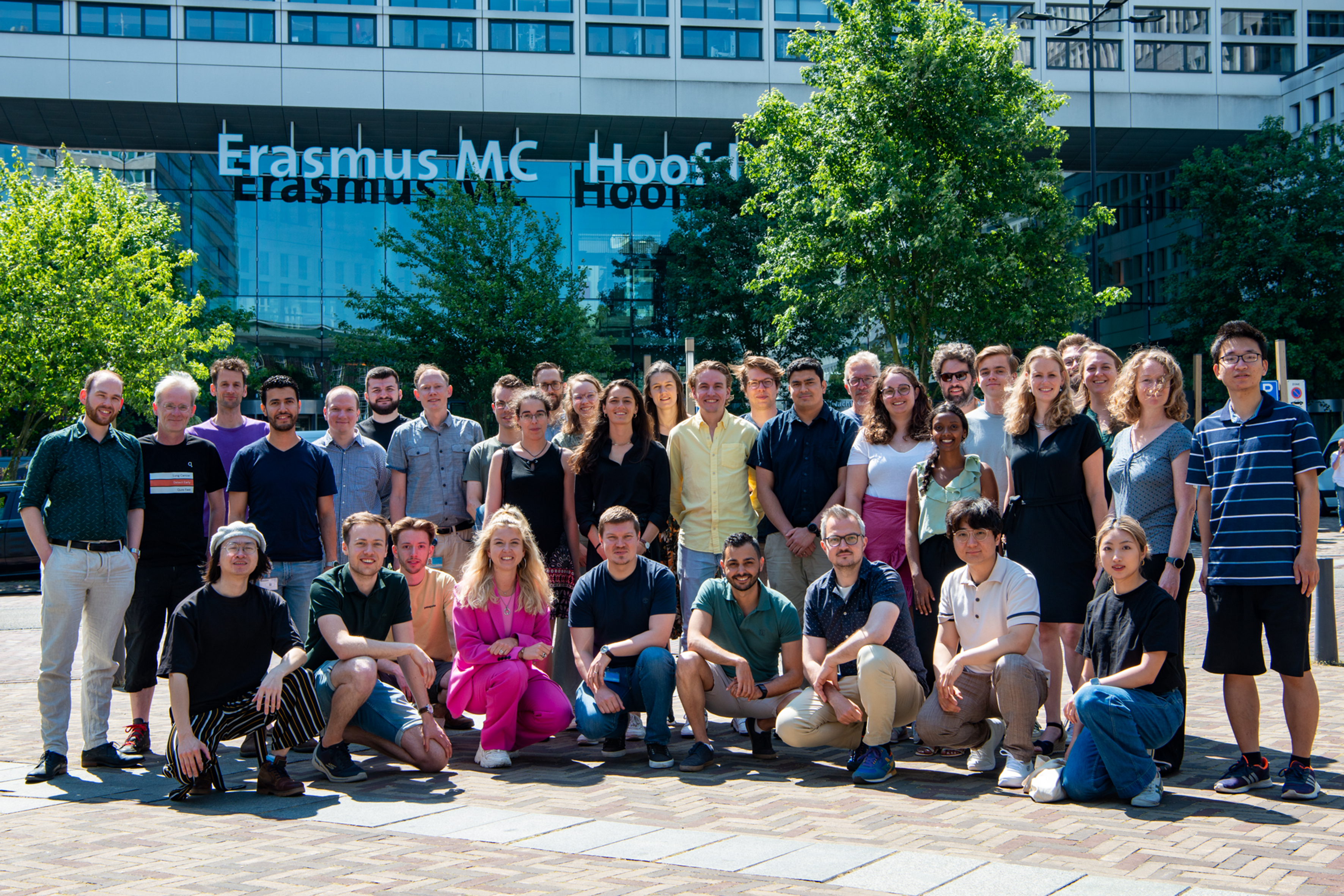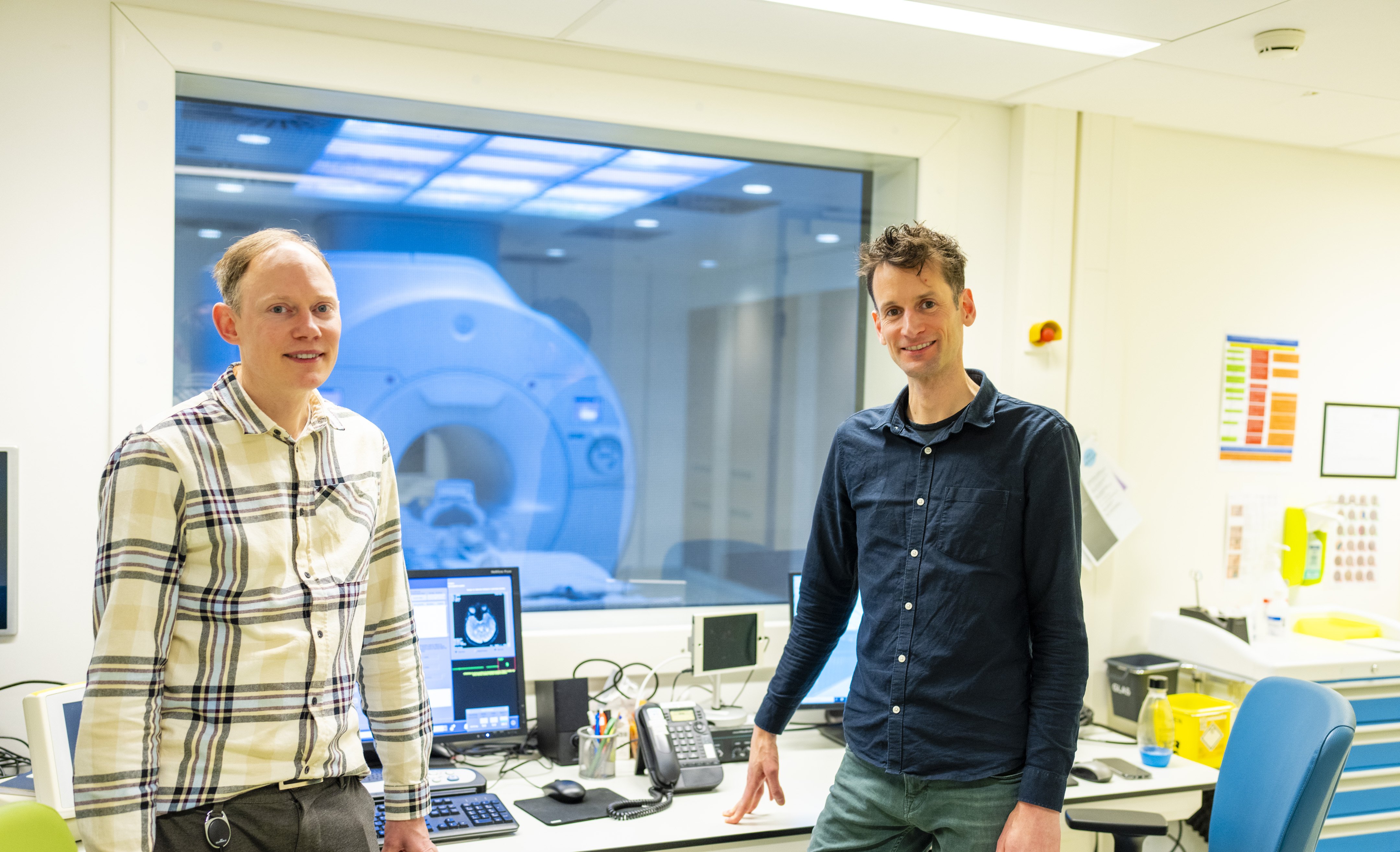


Biomedical Imaging Group Rotterdam
The Biomedical Imaging Group Rotterdam (BIGR) is at the forefront of research in medical image analysis & artificial intelligence (AI). We aim to improve efficiency and quality of healthcare by developing innovative AI methods in medical imaging.
We focus on both fundamental and applied research, covering the topics of image analysis, machine learning, image reconstruction, quantitative imaging biomarkers, image-guided interventions, making use of both research data and routine clinical data.
We have a strong outward look: towards other imaging sources, other diagnostic modalities, integrated diagnostics, collaboration with clinical departments. We have strong collaborations with many researchers, clinicians and industry partners.
July 28, 2025
The Department of Radiology & Nuclear Medicine has published its yearly scientific report for 2024
Erasmus University has, upon nomination by Erasmus MC, appointed Stefan Klein as full professor in the field of Applied Medical Image Analysis.
May 30, 2025
On Wednesday, the 14th of May, Xianjing Liu (Lau) defended his dissertation on ‘3D Facial Shape Analysis’.

Tumor localization and visualization using magnetic seed tracking and augmented reality
2024 - 2028

Imaging infrastructure for the COllaboration for New TReatments of Acute Stroke Consortium
2023 - 2028
The Rotterdam Study is a large population-based cohort designed to investigate causes and consequences of age-related diseases. Since 2005, brain imaging has been performed in over 6,000 participants using a 1.5T MRI scanner. A hardware upgrade in 2020 resulted in changes in signal reception across brain regions, introducing variability in subjects scanned directly before and after the scanner ugrade. This complicates longitudinal analysis, which is essential to study long-term disorders such as dementia. The aim of this project is to evaluate and apply feature-based harmonization methods (e.g., ComBat) and to explore deep learning-based approaches to correct for scanner-related variability in imaging biomarkers. Once harmonized, the data can be used to address longitudinal research questions, such as the association between cortical thickness and dementia risk. There is flexibility to explore specific research questions in the context of dementia. We are looking for a motivated student with an interest in neuroimaging analysis and epidemiology.
The aim is to develop an AI-based algorithm that uses qMRI of a patient to synthesize diagnostic-quality contrast images and/or recommend personalized acquisition settings for subsequent scans. This approach seeks to enhance diagnostic precision, reduce scan time, and enable efficient, patientspecific imaging without redundant acquisitions. This project designed for a motivated master student interested in MR physics, medical image analysis, and AI seeking a 6-9 month master’s thesis starting Aug/Sept 2025. Experience with Python and some familiarity with deep learning (preferably PyTorch) is expected.
Diagnosing liver lesions using multiparametric MRI requires detecting complex, often subtle features - such as washout, fat content, capsular enhancement, and iron deposition - However, these features can be subtle and challenging to detect, often requiring the expertise of experienced radiologists, which limits the scalability of supervised AI approaches. With the rise of vision-language models (VLMs) like GPT-4V and DeepSeek-VL, a key question is whether such models can reliably identify and describe these features across diverse MRI sequences. This project explores the diagnostic potential of VLMs as assistive tools, with a particular focus on benchmarking their ability to see and reason over relevant imaging features in comparison to expert radiologist interpretations and pathology- confirmed diagnoses. The primary goal is to systematically evaluate how well these models extract and describe clinically meaningful features from annotated MRI data, and to what extent their predictions aligns with real-world diagnostic outcomes. Depending on results and interest, the project may also explore fine-tuning existing models to improve domain-specific performance, or - if performance proves reliable - developing a lightweight graphical interface to make these models more accessible and interpretable in a clinical context. This research is part of the Liver Artificial Intelligene - Consortium, a collaborative initiative focused on advancing AI models in liver imaging, bringing together interdisciplinary expertise to unlock new diagnostic possibilities.